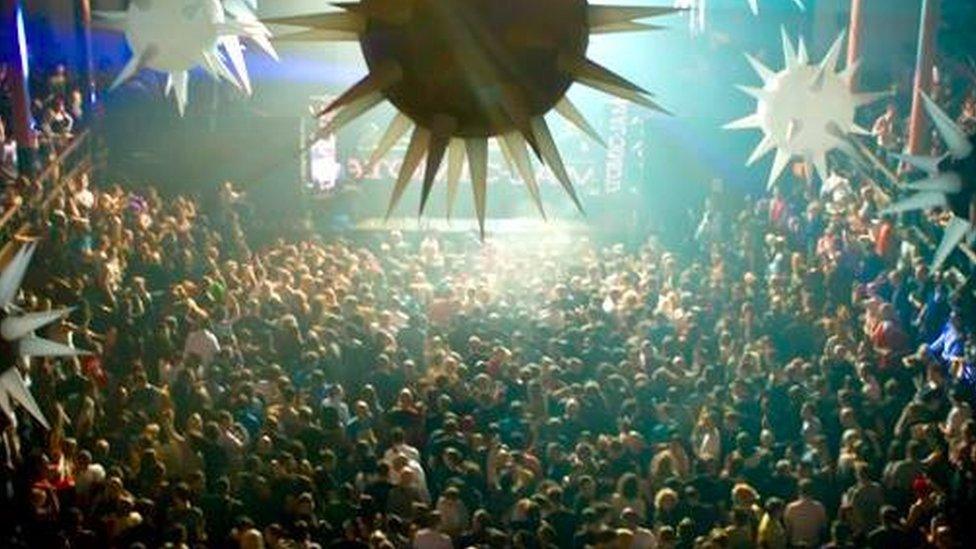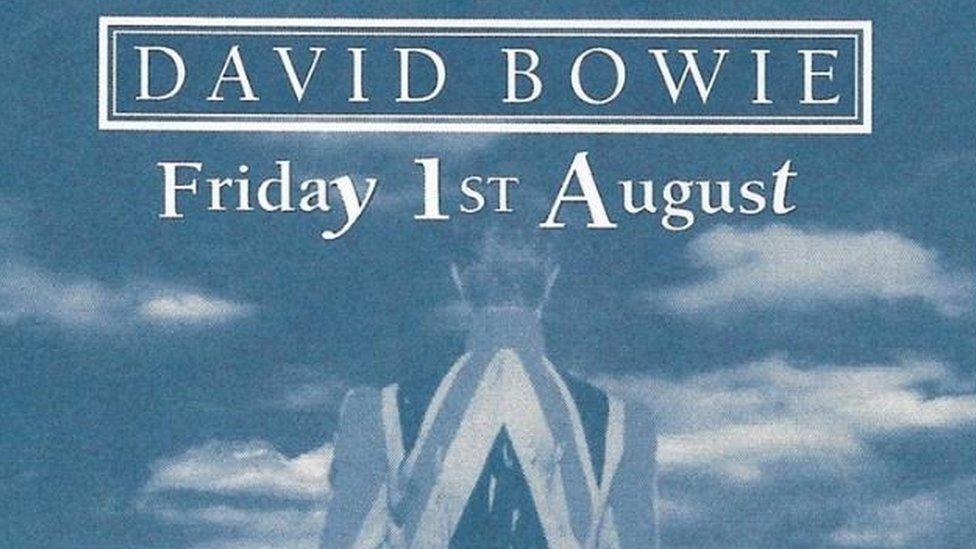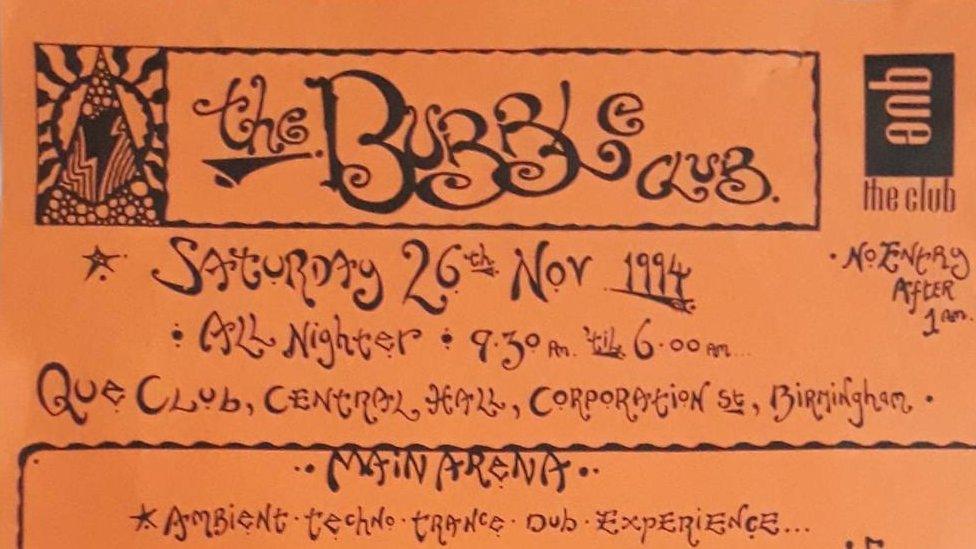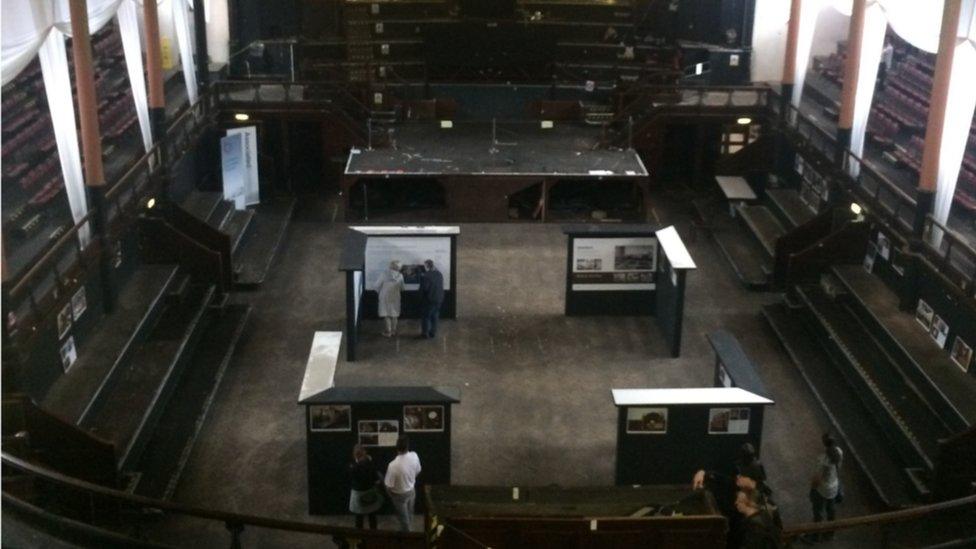History of Birmingham's Que Club retold in heritage project
- Published

The Que Club entertained thousands of revellers and concert-goers over the differing musical decades
The 30-year history of a celebrated Birmingham music venue is to be documented for the first time.
Stars including David Bowie and Blur performed at The Que Club, which also became known for an array of popular dance music events.
The Grade II-listed Methodist Central Hall is now derelict but had been purchased by a developer.
A £42,000 lottery grant for In The Que will tell the story of the fabled venue online and through exhibitions.
Contributions from former staff, audience members, artists, bands, DJs and promoters will help bring the numerous memorable events back to life.

The star performed there in 1997

The Bubble Club was one of the venue's dance music nights
After the building became a music venue in 1989, some of the UK's most popular bands and artists performed there, music historian Jez Collins said.
As the acid house rave era emerged, it also became host to club nights Atomic Jam, Flashback and House of God.
BBC Radio 1 used it for its Essential Mix nights, which saw DJs Carl Cox, Sven Vath and Paul Oakenfield entertaining partygoers and millions of listeners.
David Bowie performed there in 1997 and French dance music duo Daft Punk included 45 minutes of their live set at the club on their album Alive 1997.

The lottery-funded project will be led by music historian and researcher Jez Collins
Merchandise, flyers, posters and ticket stubs will be digitised and published on the Birmingham Music Archive website and will go on show in a series of exhibitions over the next year, Mr Collins said.
"The Que Club was home to many different communities irrespective of colour, gender or sexuality and this was reflected in the mix of artists and club nights that performed there," he said.

The building is now on the Heritage At Risk register
The venue, now on the Heritage At Risk register, was bought by a London-based developer who planned to turn it into an upmarket hotel, although it is not clear when that may happen.
"Like a lot of other important music venues across the UK, the building is now destined for change," Mr Collins said.
"This project will celebrate the pioneers of rave and dance culture in Birmingham and shine a light on a hidden history of Birmingham's music heritage and culture."

Follow BBC West Midlands on Facebook, external, on Twitter, external, and sign up for local news updates direct to your phone, external.